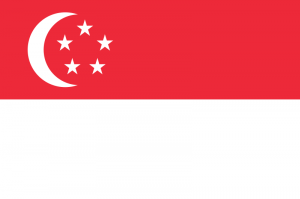 As the first country in Southeast Asia to achieve so-called “first world” status, Singapore’s dynamic economy has continued to grow and the Singapore recruitment market offers plenty of job opportunities for highly skilled foreign expatriates and Singaporean returnees alike.
As the first country in Southeast Asia to achieve so-called “first world” status, Singapore’s dynamic economy has continued to grow and the Singapore recruitment market offers plenty of job opportunities for highly skilled foreign expatriates and Singaporean returnees alike.
The Singapore Diaspora and Singaporean Returnees
While Singapore is a magnet for both migrant workers and professionals seeking better job opportunities, the country also suffers a brain drain as highly skilled Singaporean professionals choose to work or study abroad. Likewise, many of the highly skilled professionals who migrate to Singapore from other Southeast Asian countries do so with the intention of making Singapore a pit stop as it inevitably becomes easier to then migrate to countries like the United States, the United Kingdom, Australia or New Zealand once someone has Singaporean permanent residency (PR) or even Singaporean citizenship. It’s also worth mentioning a survey conducted by the Singapore Polytechnic which revealed that more than 50% of Singaporean youths aged between 15 and 29 years of age want to migrate overseas if given the chance to.
On the other hand, Singapore has made a concerted effort to shed its image of being a safe but boring place to visit or live – most notably with the addition of Resorts World Sentosa and the Marina Bay Sands casino complexes.
The Singapore Recruitment Market
Thanks to both its geographic location and the fact that Singapore is a major regional hub for multinational corporations operating in Southeast Asia, the Singapore recruitment market has bounced back since the financial crisis with opportunities for foreign expatriates, locals and Singaporean returnees in particular being concentrated in the healthcare and life sciences sector along with the FMCG and related sectors (e.g. advertising and media). The Singaporean IT recruitment market also appears to be picking up – mainly for sales and business development positions.
On the other hand, the Singapore recruitment market for the manufacturing and industrial sectors as well as for the banking sector remains much more uncertain due to the global economy with current hiring activity in Singapore being driven by demand for highly skilled technical and engineering professionals while some banking and financial institutions continue with plans to downsize their workforces.
Working in Singapore
Singapore has an open door immigration policy but the country also periodically tweaks its immigration policies and the criteria for work permits in order to manage the size of its foreign workforce. Specifically, foreign expatriates intending to work in Singapore need to be aware that the country divides foreign expatriates who are not Singapore Permanent Residents into three classes based on salary for work permit purposes:
- Singapore Q1 Pass: The qualifying salary for a Singapore Q1 Pass is at least S$3,000 and Singapore has tightened the education qualifications for foreign expatriates seeking this work permit. Specifically, young graduates from good institutions can qualify for the Singapore Q1 Pass if they earn at least S$3,000 but older applicants will need to command higher salaries that are commensurate with their work experience and the quality of their skills that they are expected to bring to Singapore.
- Singapore P2 Pass: The qualifying salary for a Singapore P2 Pass is S$4,500 and this work permit is intended for foreign expatriates with mid-level qualifications or work experience.
- Singapore P1 Pass: The qualifying salary for a Singapore P1 Pass is S$8,000 and this work permit is intended for foreign expatriates with who are entrepreneurs, senior managers, executives or professionals with specific training.
However, the Singapore Ministry of Manpower will view work permit applications on a case-by-case basis and foreign expatriates with proven track records and exceptional skills-sets may still obtain a Pass without having to meet the above qualifying salaries. For further information about obtaining a Singapore work permit or visas for Singapore, visit the website of the Singapore Ministry of Manpower or that of the Immigration & Checkpoints Authority Singapore Government.
As for taxes, Singapore resident individuals with employment income and rental income from Singapore are subject to Singaporean income taxes at progressive rates up to 20% while non-residents are taxed at the 15% or the resident rate – whichever is higher. All other income of nonresidents sourced in Singapore is taxed at a flat rate of 20% while nonresident individuals (other than a director) in Singapore for short-term employment for not more than 60 days may be exempt from tax in Singapore. This exemption does not apply to non-resident company directors or non-resident professionals such as foreign experts, consultants, trainers and coaches. A foreign expatriate is considered a Singapore resident if he or she is physically present or has a Singapore job for 183 days or more during the tax year while a Singapore citizen is considered a tax resident if he or she normally resides in Singapore except for temporary absences. For further information about Singapore tax rates or Singaporean taxes in general, visit taxrates.cc, or KPMG’s Taxation of International Executives page for Singapore or the website of the Inland Revenue Authority of Singapore.
Singapore Recruitment and Jobs Resources
For additional Singapore recruitment resources, check out the Singapore tagged posts from our Brain Drain to Brain Gain blog as well as our Singapore jobs page.
